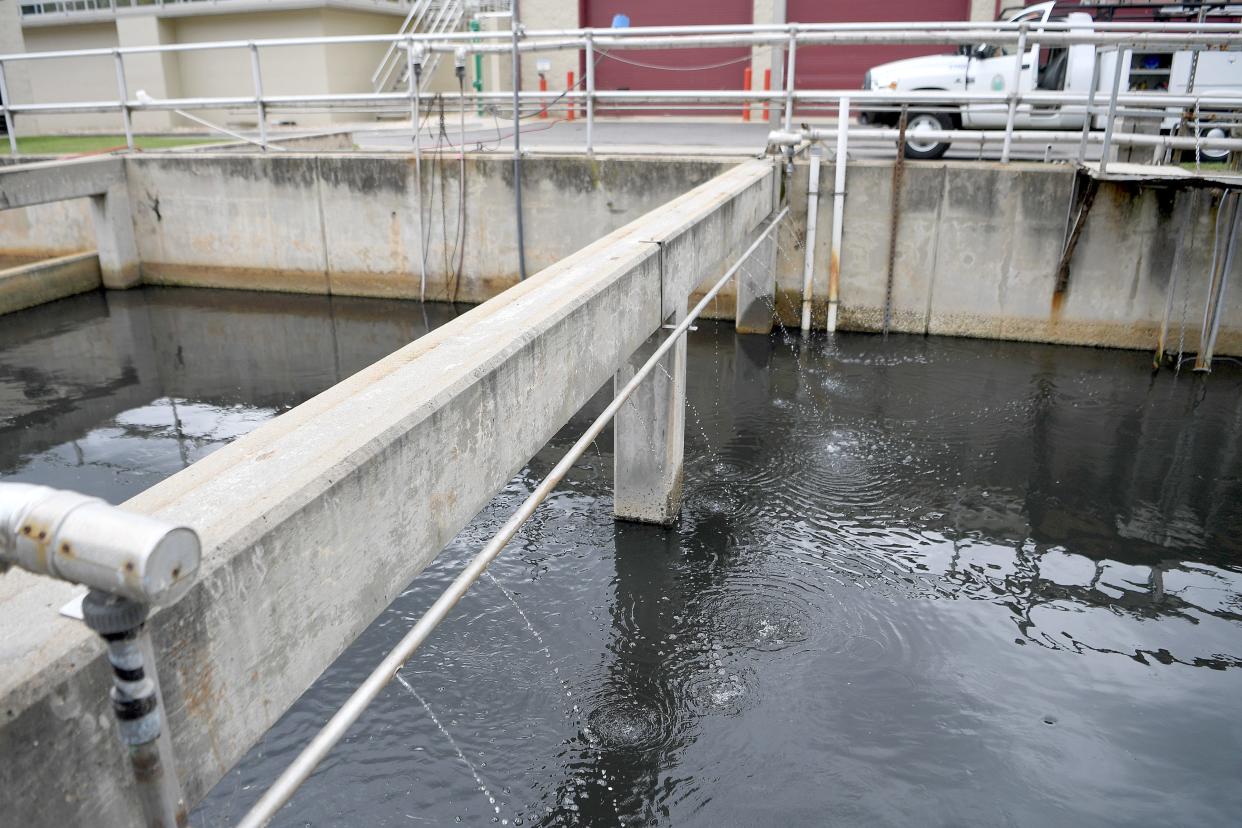Answer Woman: Does Asheville test drinking water for microplastic contaminants?
ASHEVILLE - A reader asks if the city of Asheville tests water supply for microplastics. Should residents boil their drinking water to reduce contaminants?
Do you have a question for Answer Man or Answer Woman? Email Executive Editor Karen Chávez at KChavez@citizentimes.com and your question could appear in an upcoming column.
Question: I recently read an article based on scientific studies that demonstrate that boiling water because of the chemistry can remove 90% of the microplastic particles from drinking water. I'm curious as to whether our local water district system tests for microplastics. If so, what have they found? If not, why not? Is it recommended that we boil our drinking water to remove microplastics?

Answer: While the city of Asheville does not monitor water supply for microplastics, it does track levels of PFAS, a group of manmade chemicals that pose a similar risk in their longevity and overwhelming presence in water supplies. PFAS is an abbreviation for perfluoroalkyl and polyfluoroalkyl substances. As for decontaminating your tap water at home, studies show that other purification methods work better than boiling to combat microplastics.
Why isn’t the city of Asheville testing for microplastics in the water supply?
Brenna Cook, a compliance manager who works in PFAS testing for the water resources department, explained the lack of testing to the Citizen Times.
“The EPA hasn't set like a standard protocol or set way to test for it,” Cook said. “Usually, when new concerns come up, EPA has to do research to guide water utilities on how to sample and collect. And so, since that hasn't started, we have not been testing.”
Based on EPA proposals, since 2015 the city has been monitoring levels of six of the most prominent PFAS contaminants found in drinking water. PFAS are defined by the EPA as “widely used, long lasting chemicals, components of which break down very slowly over time” and linked to serious health risks.
As of 2023, Asheville’s drinking water does not exceed the maximum contaminant levels set by EPA regulations. In fact, levels of PFAS in the water supply were low enough to be undetectable.
High Country Watershed Outreach Coordinator for MountainTrue Hannah Woodburn told the Citizen Times that, while microplastics are everywhere, testing city water supplies for the presence of these contaminants can be tricky.
“The technology and the science is pretty far behind,” Woodburn said. “There's so many methods out there for sampling. If you're not in a lab that's completely confined, you're likely getting contaminants.”
Because of these underdeveloped levels of technology, Woodburn said that municipalities like Asheville would likely need steep funding in order to conduct consistent tests for microplastics.
“If Asheville were to test for microplastics, it would have to be pretty much completely on their own terms,” Woodburn said.
Should I be boiling my tap water?
Though the city doesn’t test for them, Cook was able to comment on whether boiling your drinking water might reduce any microplastic contaminants.
“There is an article out there that says you can boil your water, but it's only if you have hard water, and we have very soft water, so it's not going to help,” Cook said.
A February study from ACS Publications presented evidence that boiling household tap water could remove up to 80% of certain microplastic contaminants. However, the process only worked for water containing sufficient levels of calcium carbonate — also known as “hard water.”
Instead, Woodburn pointed to a simpler alternative as the best way to reduce potential contamination.
“Just your run of the mill activated carbon filter when your water is coming out of the tap is the best way to eliminate or avoid microplastics in your drinking water,” Woodburn said.
As an added bonus, activated carbon filters can help reduce PFAS contaminants. The city of Asheville recommends these filters as an additional caution for any residents still concerned about potential health hazards stemming from these chemicals.
Woodburn added that, in lieu of city monitoring, Asheville residents concerned about microplastic levels should keep an eye on research from organizations like MountainTrue and Waterkeepers, Carolina, an organization that represents all 15 riverkeepers in North Carolina.
Iris Seaton is a trending reporter for the Asheville Citizen Times, part of the USA TODAY Network. Reach her at iseaton@citizentimes.com.
This article originally appeared on Asheville Citizen Times: Does Asheville test drinking water for microplastic contaminants?
